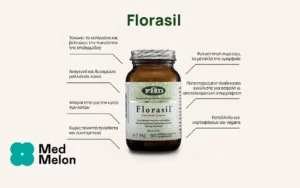Scientific Names of Fenugreek Seed:
Trigonella foenum-graecum L. [Fam. Fabaceae]
Forms:
Infusion, extract, tincture, and poultice made from the crushed or powered seed of Trigonella foenum-graecum L.
Traditional Usage:
– Anti-inflammatory
– Antiseptic
– Antispasmodic
– Appetite loss
– Breastfeeding Aid
– Catarrh (Respiratory)
– Colds and Flu, Bronchitis, Sore Throat
– Diarrhea
– Digestive Disorders
– Dyspepsia
– Female Health Maintenance
– Indigestion
– Menstrual Health Maintenance
– Poultice
– Respiratory Health Maintenance
– Skin Disorders
– Skin inflammation
– Sugar Control
– Ulcers
Overview:
Fenugreek, Trigonella foenum-graecum L. [Fam. Fabaceae], also known as Bird’s Foot, is indigenous to the Mediterranean region, the Ukraine, India, and China. The medicinal properties of fenugreek are found in the ripe, dry seeds, which have been used for thousands of years in Arabian, Greek, Indian, and Chinese medicine. Crushed or powdered, these seeds can be used externally and applied as poultices for boils, hives, ulcers, and eczema. Internally, fenugreek seeds have been used in folk medicine to reduce blood sugar, increase lactation and treat pellagra, appetite loss, indigestion, dyspepsia, bronchitis, fever, hernia, impotence, vomiting, catarrh of the respiratory tract, and stomach ulcers. Fenugreek seed is also known to make women more buxom and treat hormonal imbalances. According to the German Commission E, fenugreek seeds have secretolytic (anti-mucous) and mild antiseptic properties. The British Herbal Pharmacopoeia states that the seeds have demulcent (soothing) and hypoglycemic actions. Jean Carper, in her excellent book, Food Your Miracle Medicine, notes that fenugreek has long been used in Indian and Middle Eastern cooking and has a long history of use for treating diarrhea and gastrointestinal spasms. Scientific studies have shown that for adults (not children), taking one-half teaspoon of fenugreek seeds with water three times daily often produces a quick and “marked” relief, usually after the second dose according to researchers at the Odense University in Denmark. Carper also reports that scientists at India’s National Institute of Nutrition recently ground up fenugreek seeds and gave the powder to Type I sugar control patients. Not only did their fasting blood sugar fall and their glucose tolerance improve, but their blood cholesterol also went down. Israeli scientists have confirmed this with normal and sugar-control patients. Many animal studies have documented the same. Other studies established anti-inflammatory effects of the seeds and strong activity against abnormal growths.
Active Ingredients:
Fenugreek seed contains 45-60% carbohydrates, mainly mucilaginous fiber (galactomannans); 20-30% proteins high in lysine and tryptophan; 5-10% fixed oils (lipids); pryridine-type alkaloids mostly trigonelline (0.2-0.36%), choline (0.5%), gentianine, and carpaine; flavonoids (apigenin, luteolin, orientin, quercetin, vitexin, and isovitexin); free amino acids (4-hydroxyisoleucine [0.09%], arginine, histidine, and lysine); calcium and iron; saponins (0.6-1.7%); glycosides yielding steroidal sapogenins on hydrolysis (diosgenin, yamogenin, tigogenin, neotigogenin); cholesterol and sitosterol, vitamins A, B1, C, and nicotinic acid; and 0.015% volatile oils (n-alkanes and sesquiterpenes). [Blumenthal et al. 2000; Shang M, Cai S, Han J, Li J, Zhao Y, Zheng J, Namba T, Kadota S, Tezuka Y, Fan W. 1998. Studies on flavonoids from Fenugreek (Trigonella foenum-graecum L.)] Zhongguo Zhong Yao Za Zhi. 1998 Oct; 23(10): 614-6, 639].
Suggested Amount:
The German Commission E recommends an internal daily dose of 6 grams. For infusions, place 0.5 grams (1 teaspoon = 4.5 g) of fenugreek seed in cold water and let stand for three hours and strain. Drink one cup with honey several times per day.
Fluidextract 1:1 (g/ml): 6 ml.
Tincture 1:5 (g/ml): 30 ml.
Native extract 3-4:1 (w/w): 1.5-2 g. (Blumenthal, Goldberg, Brinckmann, 2000)
For external use: The German Commison E recommends an external dose of 50 grams of powdered fenugreek seed added to 1/4 litre of hot water and applied as a warm poultice or used as a bath additive. (Wichtl and Bisset)
Drug Interactions:
None known.
Contraindications:
Not recommended during pregnancy.
Side Effects:
According to Wichtl and Bisset (1994), excessive use may result in skin reactions. Coumarins and estrogen can be toxic if taken in large amounts. Fenugreek seeds are also believed to contain trypsin inhibitors and chymotrypsin inhibitors. (Duke JA. 1985)
References:
Blumenthal M, Goldberg A, Brinckmann J 2000. Herbal Medicine: Expanded Commission E Monographs. Copyright American Botanical Council. Publ. by Integrative Medicine Communications, 1029 Chestnut Street, Newton, MA 02464. Pp. 130-133.
Raju J, Gupta D, Rao AR, Yadava PK, Baquer NZ. Trigonella foenum-graecum (fenugreek) seed powder improves glucose homeostasis in alloxan diabetic rat tissues by reversing the altered glycolytic, gluconeogenic and lipogenic enzymes. Mol Cell Biochem. 2001 Aug; 224(1-2): 45-51.
Sharma, R. D. 1990. Effect of fenugreek seeds on blood glucose and serum lipids in type I diabetes. European Journal of Clinical Nutrition 1990; 44(4): 301-306.
Sur P, Das M, Gomes A, Vedasiromoni JR, Sahu NP, Banerjee S, Sharma RM, Ganguly DK. Trigonella foenum-graecum (fenugreek) seed extract as an antineoplastic agent. Phytother Res. 2001 May; 15(3): 257-9.
Wichtl M and NG Bisset (eds). 1994. Foenugraeci semen – Fenugreek seed, Trigonella. In Herbal Drugs and Phyto-pharmaceuticals. (English translation by Norman Grainger Bisset). CRC Press, Stuttgart, pp. 203-205.




